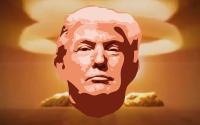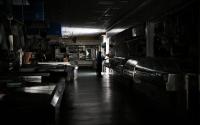11 October 2007
A Myanmar opposition party member died during interrogation and two activists were arrested as the ruling junta pressed its crackdown on the pro-democracy movement, an exile group said Wednesday.
The Thailand-based Assistance Association for Political Prisoners also said security officers had been threatening dissidents' relatives and neighbors in an attempt to get information on the whereabouts of those involved in last month's anti-government protests, which were brutally suppressed by the military.
The Myanmar exile group, made up of former political prisoners, said authorities had recently informed the family of Win Shwe, 42, that he had died during interrogation in the central region of Sagaing. He and five colleagues had been arrested on September 26, the first day of the crackdown.
The group said Win Shwe, a member of pro-democracy leader Aung San Suu Kyi's National League for Democracy (NLD), was cremated at the detention center. The report could not be independently verified. But in the past, the group has provided detailed, accurate information on political prisoners in Myanmar, also called Burma.
The alleged death of Win Shwe drew a harsh reaction from the United States. Washington called for an investigation and threatened further sanctions against the impoverished country also known as Burma.
"The United States strongly condemns the atrocities committed by the junta and calls for a full investigation into the death of Win Shwe during his detention in Burma," White House foreign affairs spokesman Gordon Johndroe said. "The junta must stop the brutal treatment of its people and peacefully transition to democracy or face new sanctions from the United States."
In a USA Today newspaper interview published Wednesday, first lady Laura Bush said Washington was poised to impose more sanctions unless the government loosens its grip on the populace "within the next couple of days."
But State Department spokesman Sean McCormack, asked about new sanctions, offered no timetable.
President Bush, asked at a White House event Wednesday what he thought of his wife's remarks, flashed a thumbs-up sign.
The exile group also said the backlash against dissidents continued, even though the streets of Myanmar are apparently calm.
"The security forces have become more severe in raiding houses of, and searching for, anyone whom they suspect to have been involved in the protests," it said.
The prisoners' association said at least seven people have been arrested in the past two days in Myanmar's largest city, Yangon, including two on Wednesday. The arrests even as the junta and the NLD appeared to be taking cautious steps toward talks.
The NLD won a landslide election victory in 1990, but the junta never allowed the parliament to convene.
Troops crushed the recent wave of protests by shooting at demonstrators on September 26 and 27. The regime said 10 people were killed, but dissident groups put the toll at up to 200 and say thousands of students, Buddhist monks and others were arrested. The crackdown ignited international outrage.
In the face of such pressure, the junta's top general offered last week to meet with Suu Kyi, a 62-year-old Nobel Peace Prize laureate who has been under house arrest for 12 of the past 18 years without trial.
The general said Suu Kyi must first renounce her calls for international sanctions against the regime.
The junta also appointed cabinet-level official Aung Kyi -- who has a reputation as being relatively flexible -- to coordinate contacts with Suu Kyi, whose party said it was prepared to make "adjustments" for the sake of dialogue.
The appointment of Deputy Labor Minister Aung Kyi, a retired major general, appeared to be a gesture toward the United Nations.
U.N. special envoy Ibrahim Gambari had suggested creating the job during his visit to Myanmar last week, state media said.
The arrests Wednesday targeted a leader of a group called the '88 Generation Students. Hla Myo Naung was arrested in Yangon while seeking treatment for a serious eye problem, the exile group said.
Hla Myo Naung, 39, had been on the regime's "wanted list" but had evaded arrest for two months. A young woman who had been with him and belongs to the '88 Generation was also arrested.
The '88 Generation organized marches in August over fuel price increases. The protests quickly ballooned into mass demonstrations calling for democracy when widely respected Buddhist monks began taking the lead.
On Wednesday, small groups of riot police patrolled key road junctions and sites where the most intense protests had erupted, including Yangon's Shwedagon Pagoda and a junction near the downtown Sule Pagoda.
But soldiers were not visible on the streets, and Yangon seemed generally normal.
At the United Nations, Security Council members met for hours behind closed doors late Wednesday to discuss changes to a draft statement on the situation in Myanmar.
The U.S., Britain and France circulated a revised version Tuesday that strongly deplored "the violent repression by the government of Myanmar of peaceful demonstrations." China and Russia on Wednesday issued a new draft with much softer language. The statement could be approved as early as Thursday.
http://edition.cnn.com/2007/WORLD/asiapcf/10/10/myanmar.ap/index.html?section=cnn_latest






